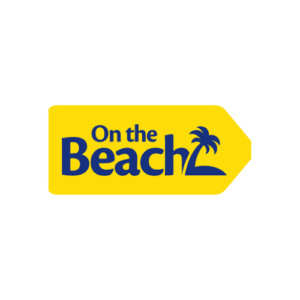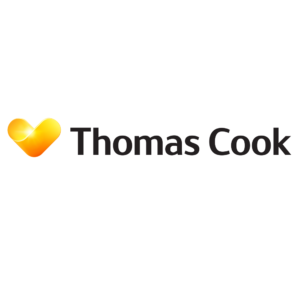
By Stuart Telling
Working with a number of Tour Operators and OTAs over the years, I have experienced this question many times, “should we develop in-house or use an out-sourced technology?”
Using in-house development resources has many benefits but outsourcing can deliver speed to market and reduce the heavy-lifting, releasing crucial resources back into the business.
Speed to market and adapting to changes in customer behaviour is critical when it comes to your online booking engine. There is a “pent-up” demand for people to book holidays borne out by demand during October and November being ahead of the same period in 2019.

There is still some uncertainty in the market which will have an effect on bookings but the demand is there for people to search, plan and book their next holiday.
Investment on ensuring website performance is essential to meet any increase in search traffic normally expected during the Winter period for bookings in Summer 2022 to ensure results are returned quickly and instantly.
Those websites using a live search will be vulnerable to performance issues as with an increasing number of supplier connections, the performance will be affected by how quickly the supplier’s system responds. During peak booking periods this can lead to extraordinarily long response times before results are returned or having to time out and risk not returning some bestselling properties.
We are seeing more companies considering replacing their “live” search with a “cache” driven primary search to guarantee speed and performance whilst ensuring that all bestselling properties are being returned within the first page of results.
This shift from “live” to “cache” has also made Tour Operators and OTAS question whether they should develop in-house or use an out-sourced technology. Before making this decision, there are three critical stages that need to be considered, initial investment, building the cache and maintaining it. Let’s explore these in more detail below:
1. Initial investment
Deploying internal resources to deliver and maintain a cache requires time and focus. This will in many cases require allocating their time to this single project and restrict progress in other areas of the business.
Prior to building a solution there will be a significant investment required in server capacity to host the data ensuring it can be easily scaled to meet spikes in website search traffic. To manage this, one option is for a cloud-hosted environment which in itself requires technical expertise to configure and manage.
During the initial stages, supplier engagement to validate cache data sources will be crucial to ensuring the success of the project and will involve continual dialogue with suppliers to understand and implement the required cache data imports.
Using an external technology provider offers a fully-managed solution from day one which overcomes some of the early challenges with kicking off the project. Many will have pre-established cloud-hosted solutions which can be easily partitioned to provide you with the infrastructure to maintain optimum performance levels across the website.
Supplier validation will also form part of the managed solution and it is likely that they have already developed the technology to easily import data that will be stored and accessed via the API.
Outsourced technology will remove the barriers to kick-start the caching project, which enables you speed to market and reduces the initial investment both from a time and resource perspective.
2. Building the cache
Managing multiple suppliers that feed into the cache is challenging especially as the data formats will vary based on the data source. In order to ensure breadth of content availability and costs are likely to be required for low-cost airlines, GDS, NDC airlines, bed banks and directly contracted hotels.
Typically, you are likely to encounter three data formats that will require normalisation prior to importing, these include:
- Full contract data push, where detailed underlying contract data is pushed by the supplier in its raw form. Properties and cost permutations will need to be rebuilt to enable them to be successfully imported
- CSV cache data files, will be generated by the supplier, tabulated to include properties, arrival/departure dates, meal bases and costs
- Some suppliers provide a dedicated API which is available to scan and retrieve the same data as mentioned above. This process will involve developing the scanning technology to efficiently retrieve data during the day
All cache data will then be imported into data tables ready for the processing and building the various combinations of holidays. Depending on the size of the data being imported the build process can take up to 12 hours from beginning to end and will need to be completed each day in time to match peak selling windows.
Factoring in build times also has an impact on when the cache data files are generated to ensure that sufficient time is available to fully complete the import process.
Outsourced caching solutions remove the daily heavy-lifting of processing and importing data from multiple suppliers and sources. Technology has been developed to simplify the build process to reduce build times which allows data files to be generated as late as possible capturing the latest availability and cost updates.
3. Maintaining a cache
Cache refreshes are essential to ensure the relevance and accuracy of the data.
Typically, caches will be completely rebuilt overnight and replaced with a new, fresh set of data, however it is critical to manage booking windows that may be volatile and subject to cost variations.
During the day, in line with peak search and sales windows, refreshing the cache will ensure that you have the best offers in the marketplace. Low-latency updates have become an important element of maintaining a cache with some suppliers’ data being refreshed every 60 mins.
This can be a significant drain on internal resources during the day having to manage and schedule cache refreshes at different times from multiple suppliers.
Ensuring that the cache data is complete and accurate adds another dimension to maintaining your cache, which involves running supplier health checks to validate the number of cache results in today’s cache compared to yesterday to highlight any potential “cache misses” and running “live vs. cache” cost comparisons to pinpoint any obvious price discrepancies.
Low-latency cache refreshes and supplier data validation will be covered as part of the managed solution using an outsourced partner. They will provide an efficient process for maintaining cache relevance and accuracy without the need to wait until the next scheduled overnight cache build.
Returning to the question “should we develop in-house or use an out-sourced technology?” I believe there is a strong argument for investing in an out-sourced solution which frees up internal development resources and maximises the expertise and strengths of the 3rd party technology platform.
This decision will break the inertia, to get started and provides agility in bringing the solution to market quickly to maximise return on your investment.
If you are looking to move to a cache solution for your primary search, considering an outsourced solution is a smart, wise move.
About DealFinder
At intuitive, we developed DealFinder to remove the barriers to entry, to manage the heavy lifting of building and maintaining a cache and deliver optimised cloud-hosted solutions with average response time sub 300ms.
Our fully-managed solution removes the need for investment in both time and resources to deliver an agile, scalable solution that will meet your business requirements.
If you would like to find out more about how you can harness the power of caching using DealFinder please do not hesitate to contact me at stuart@intuitivesystems.co.uk














